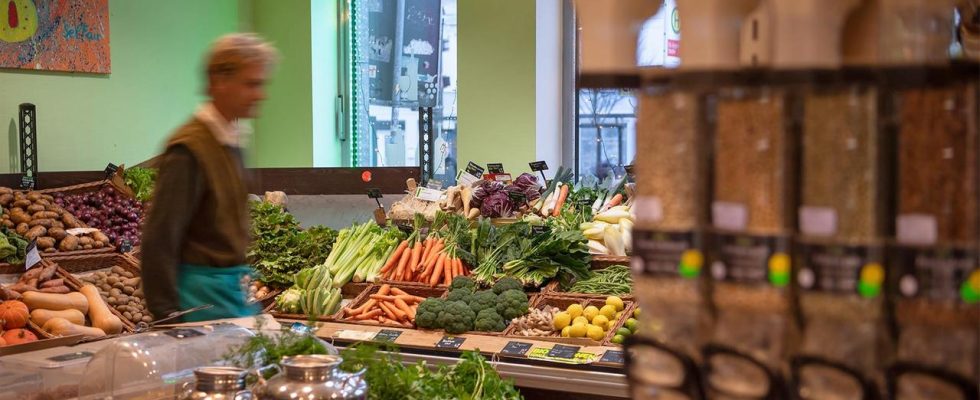High inflation caused the number of unpackaged stores in Germany to collapse last year. But experts see a trend reversal. Because avoiding waste still hits a nerve.
The increased cost of living for households as a result of high inflation is causing problems for unpackaged stores in Germany. A number of people had to give up last year. The Association of Unpackaged Stores currently lists 235 of these stores nationwide that want to avoid packaging waste. That was 50 fewer than a year ago.
In 2022, “unverpackt eV” even counted 70 closures. This compares to 44 store openings by members of the association founded in 2018 in the same period.
People continue to be very price conscious
Unpackaged stores are stores in which the entire range is offered loose – i.e. without packaging. The aim is to avoid food waste and garbage. In Germany, for example, significantly more packaging waste was consumed per capita in 2021 than the European average. According to the Federal Statistical Office, around 237 kilograms of plastic, paper or glass packaging were produced per capita in this country. Only Ireland produced more per capita, at 246 kilograms.
With regard to the negative development of unpackaged stores, the association points to the connection with the general crisis in retail and the comparatively young age of the industry, in which not every store survives the first five years. In addition, according to the market research institute GfK, many consumers would like to do their shopping quickly.
In addition, consumers in the GfK “Consumer Life” study last year were more concerned about inflation and being able to pay their bills than about climate change. This is still partly the case today, explained NIQ/GfK sustainability expert Petra Süptitz. Consumers were still very price-conscious. Many continued to search for offers and cheap products.
“Unpackaged still hits the nerve”
However, according to the expert, the low point has been overcome. The stores that have made it so far with good concepts, service and ambience will probably continue to exist, says Süptitz. According to the Unverpackt Association, the number of closures is currently low. In return, 63 new stores are being planned.
In fact, there are even signs of a trend reversal, says GfK expert Süptitz. Quality awareness is increasing and people are no longer just buying the bare essentials. The unpackaged and organic stores cannot currently benefit from this. But: “Unpackaged still strikes a chord with people.”
For example, the GfK sustainability index showed a slight increase at the beginning of the year: 58 percent of Germans would now prefer to buy less, but are more quality-conscious. 74 percent also pay attention to longevity. This also affects packaging. A survey in January showed that 69 percent of those surveyed wanted to be able to buy more products without packaging, reports Süptitz.

